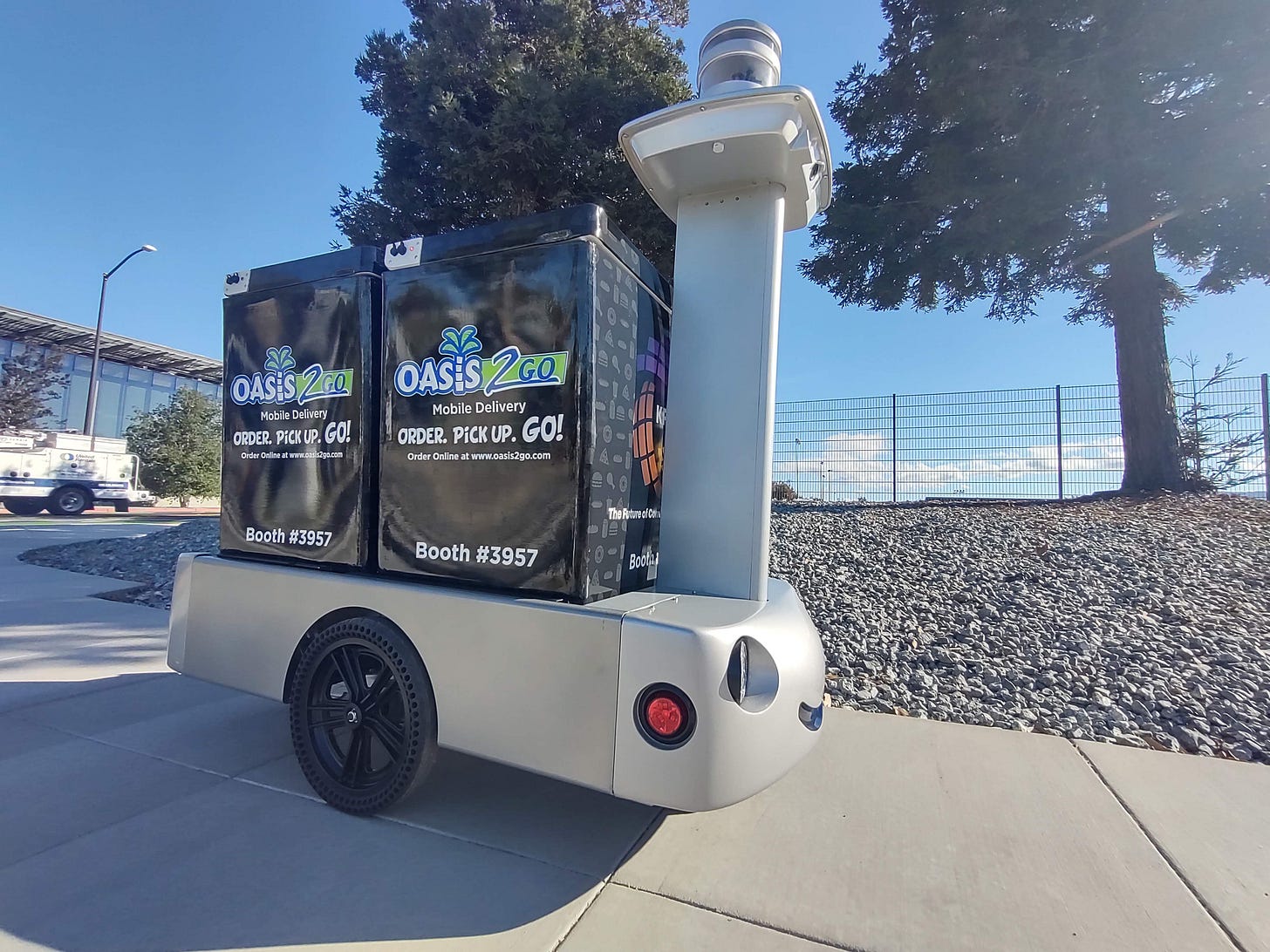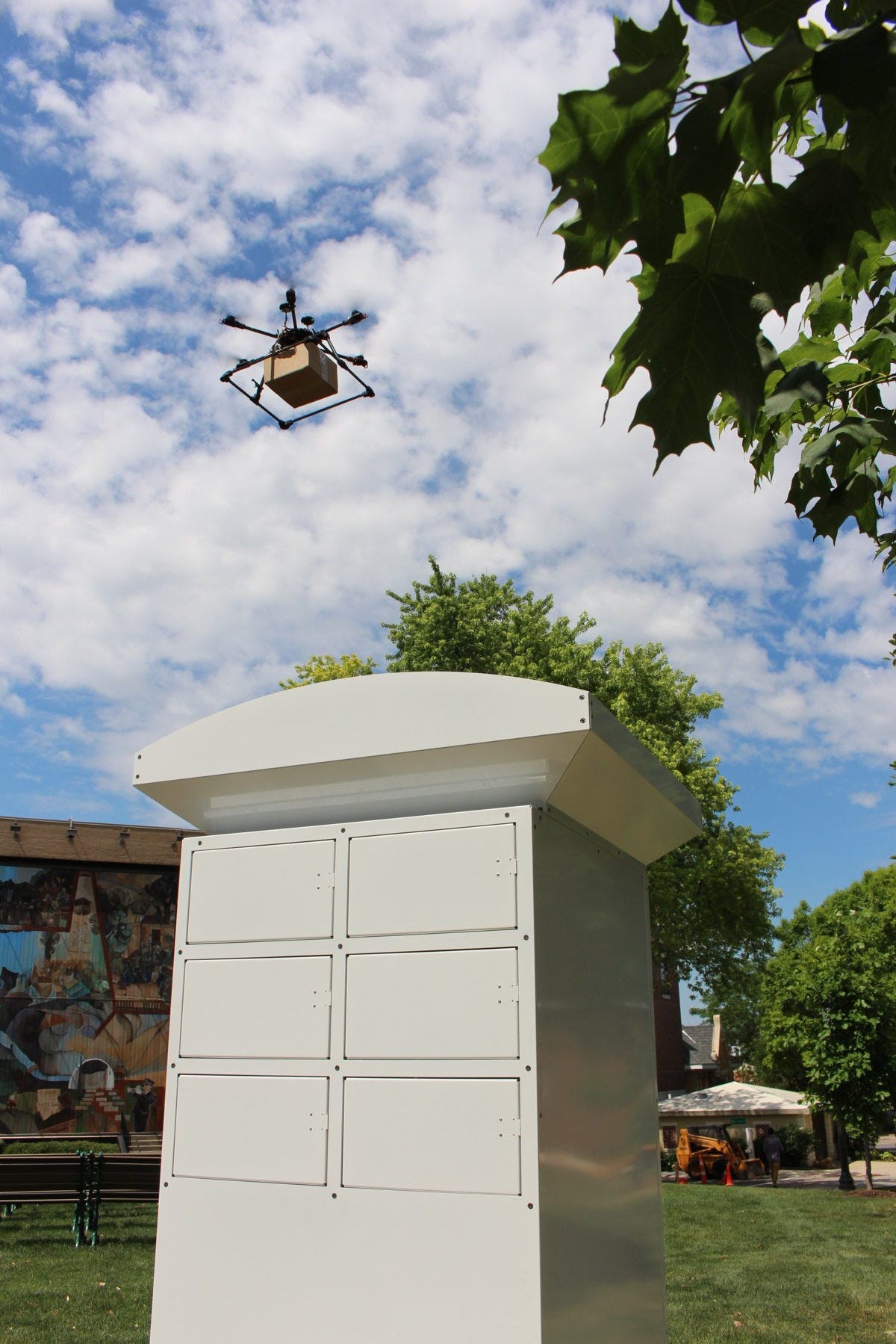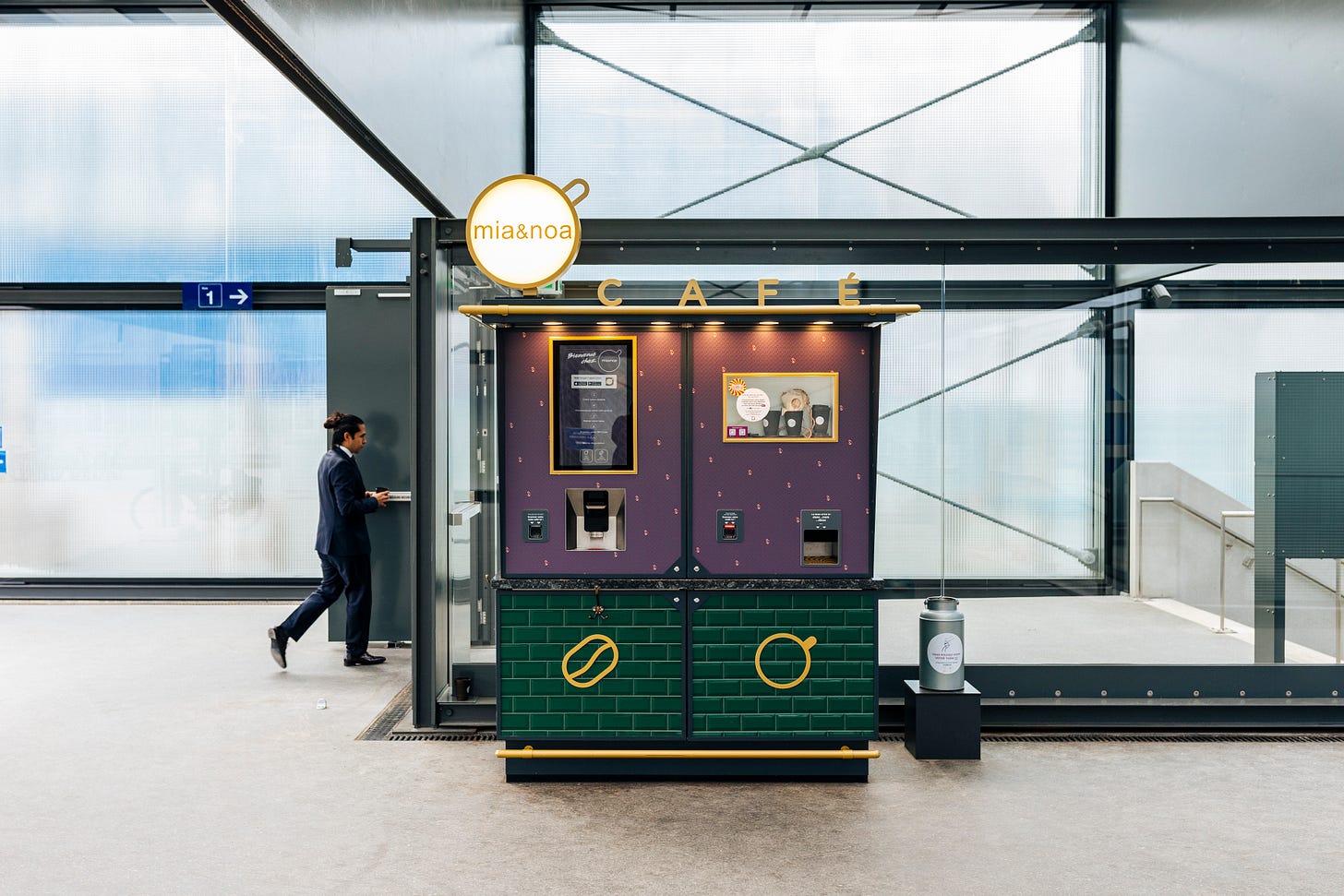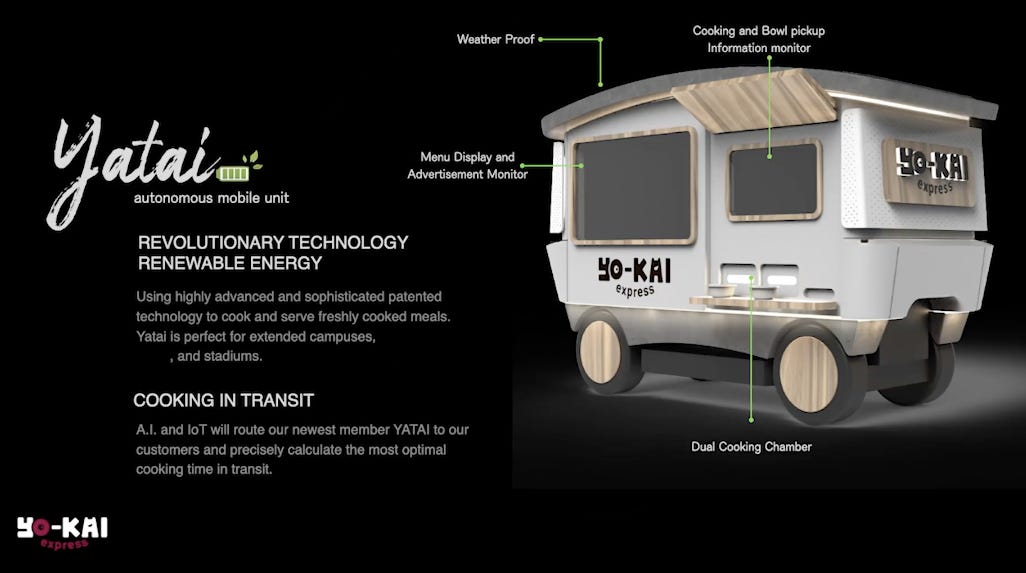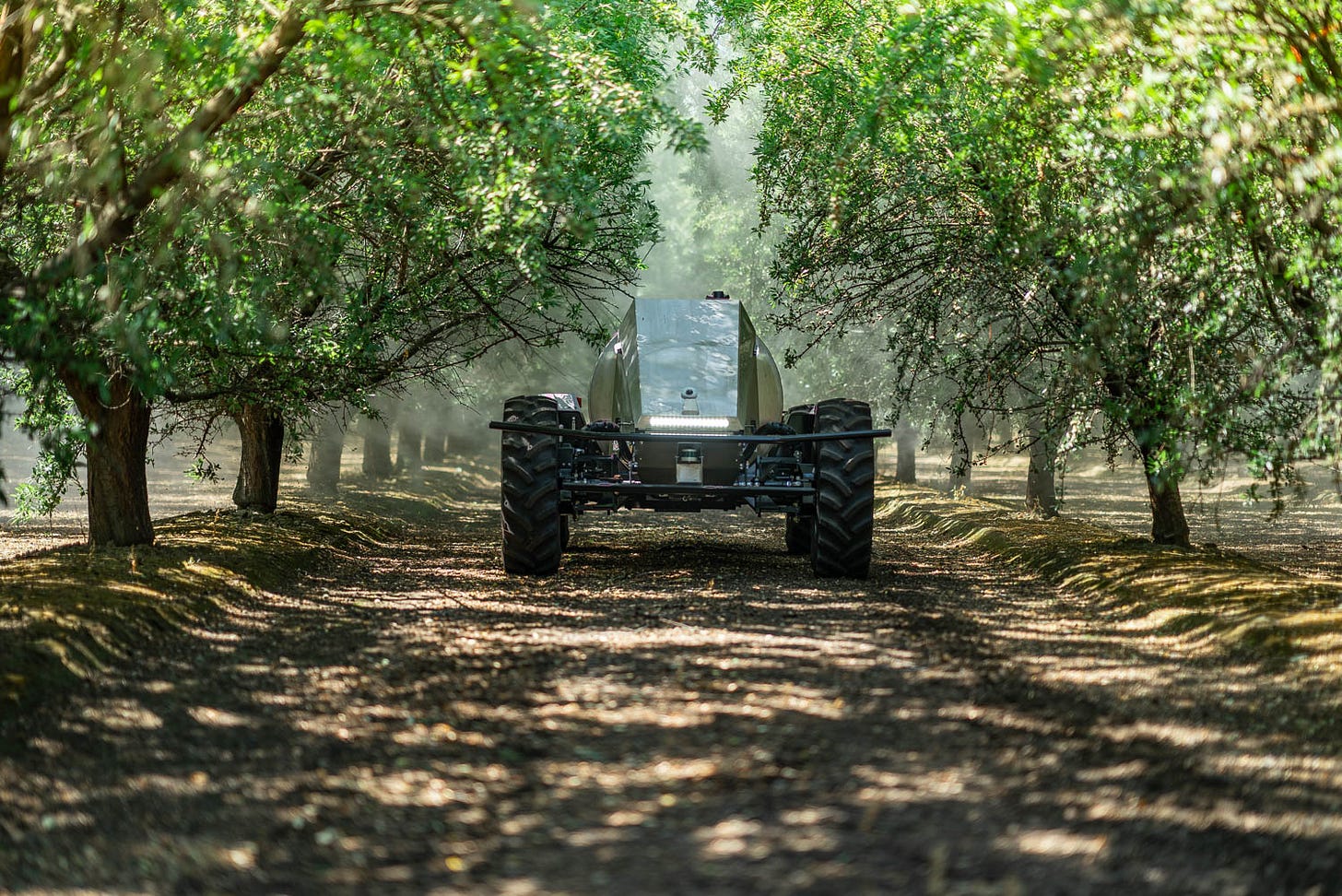It’s the most wonderful time of the year. No, not the holidays — it’s list time! A time where every news organization takes stock of what they’ve written over the previous eleven months, and wraps the best bits into an easily-consumed package.
Rather than creating a “Top” list, we at OttOmate are going in a bit of a different direction. We’re highlighting what we feel are some of the most interesting food automation startups we’ve seen this year.
They aren’t ranked, and this doesn’t mean other companies aren’t interesting to us. It’s just that these companies have an interesting niche, market approach or some other je ne sais quoi that caught our eye. But enough of my yakkin’, let’s light this candle.
Intermode
No need to prototype!
What do they do? Intermode builds delivery robots. That’s it. A bunch of ex-Ford engineers make the robots and let other services add on whatever sensors, cameras and lidar they want.
Why is this interesting? Intermode allows other delivery startups to skip the robo-prototyping stage entirely. But more than that, Intermode shows we’re at a stage of the emerging market where robot delivery services can be created with off-the-shelf parts. Get your robot from Intermode, your teleoperation system from another provider and boom! You’re halfway to launching your own delivery startup.
Tortoise
Big delivery flexibility.
What do they do? Tortoise makes a big, slow moving, teleoperated delivery robot that can haul up to 150 lbs.
Why is this interesting? Because of its flexibility. Unlike other delivery robots, Tortoise can carry a lot (150 lbs), so it can be used to haul weekly groceries over the last mile, or inventory (like rotisserie chickens!) across the middle mile between store locations.
Valqari
A smart idea for drone deliveries.
What do they do? Valqari makes smart lockers to accept and hold drone deliveries.
Why is this interesting? Valqari is making drone drop-off boxes for a number of different use cases including standalone boxes that could sit at the end of your driveway as well as landing pads that can be installed outside residential building windows.
Bobacino
Robo-boba meets cultural identity.
What do they do? Bobacino is developing a robot boba tea vending machine.
Why is this interesting? Well, boba tea is awesome. But Bobacino is on this list not because of its technology, but because of its Chief Boba Officer, Stacey Kwong. Bobacino is doing a bit of a high wire act as it navigates not only issues around automation and job loss, but of race and cultural appropriation as well. How it pulls this off next year will definitely be interesting.
mia&noa
No cup for you!
What do they do? mia&noa builds coffee robots that require you to bring your own cup.
Why is this interesting? For one, it’s helping fight the big problem with single-cups and plastic waste. But it’s also so counter-intuitive to make your customers work harder for your end product. Once you get past that initial shock, it’s easy to see how easily mia&noa could fit in at an office, school library, commuter train station or other location where the same people visit every day.
Yo-Kai Express
Amen for robo ramen.
What do they do? Yo-Kai is best known for their hot ramen vending machines, but they are quickly becoming a multi-food platform.
Why is this interesting? Yo-Kai is on the list for the ways in which they are extending their cooking platform in all directions. The company is building up co-branding relationships for its vending machines with well-known ramen restaurants, making a countertop device so you could make Yo-Kai ramen at home, and adding self-driving capabilities to its vending machines so in the very near future, you’ll be able to hail a bowl of ramen like you would a taxi.
Mukunda Foods
Bring your own ghost kitchen.
What do they do? Mukunda Foods makes a variety of automated cooking appliances such as woks, fryers and biryani cookers for restaurants.
Why is this interesting? Mukunda plans to scale by building out their own global network of ghost kitchens. These ghost kitchens will be stocked with Mukunda automation appliances allowing a small staff to create a large variety — and volume — of meals. Rather than trying to sell devices one at a time to every restaurant they can find, Mukunda is just building their centralized ghost kitchens and having the restaurants come to them.
Speedy Market
End-to-end robot retail.
What do they do? Speedy Market connects autonomous unattended retail with self-driving robot delivery.
Why is this interesting? Speedy creates full-stack autonomous retail+delivery experience. Right now Speedy has a convenience store up and running in a luxury high-rise residential building in Istanbul, Turkey. Basically its an automated convenience store that offers shopping and delivery to your door 24 hours a day. It’s not too hard to see this type of always-on, on-demand shopping service finding a home in similar buildings around the world.
GUSS
An answer to ag prayers, a self-driving sprayer.
What do they do? GUSS makes self-driving crop sprayers.
Why is this interesting? GUSS is worth noting for a few reasons. One, it’s solving a very real labor problem for farms (spraying happens during the overnight shift, so it’s even harder to hire for than regular farm jobs). Second, GUSS is building sprayers, that’s it — not a multi-function platform that can do everything. And finally, GUSS isn’t some n00b, its parent company has been spraying for 40 years, so it knows what the market wants and has the network to deliver it.
Wavemaker Labs
Incubator is making a varsity sport out of JVs.
What do they do? Wavemaker Labs is an incubator for a number of food robotics startups including Miso Robotics, Bobacino, and Piestro.
Why is this interesting? Wavemaker isn’t on the list because of its portfolio of companies. It’s here because of its new joint ventures. Instead of standard co-branding agreements with established restaurant brands, Wavemaker — and its portfolio company Piestro — have starting creating full-on joint ventures. Piestro created 800° GO with 800 Degrees Pizza, and Wavemaker partnered with C3 to create Nommi. Will joint ventures become the new go-to market for co-branded food robots?




